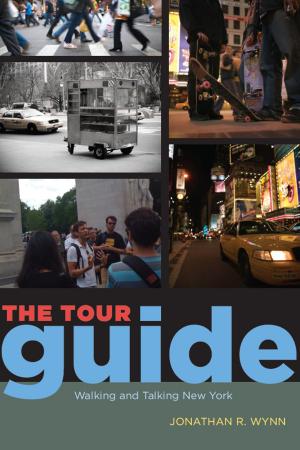Bottleneck
Moving, Building, and Belonging in an African City
Nonfiction, Social & Cultural Studies, Social Science, Sociology, Urban, Anthropology| Author: | Caroline Melly | ISBN: | 9780226489063 |
| Publisher: | University of Chicago Press | Publication: | October 17, 2017 |
| Imprint: | University of Chicago Press | Language: | English |
| Author: | Caroline Melly |
| ISBN: | 9780226489063 |
| Publisher: | University of Chicago Press |
| Publication: | October 17, 2017 |
| Imprint: | University of Chicago Press |
| Language: | English |
In Bottleneck, anthropologist Caroline Melly uses the problem of traffic bottlenecks to launch a wide-ranging study of mobility in contemporary urban Senegal—a concept that she argues is central to both citizens' and the state's visions of a successful future.
Melly opens with an account of the generation of urban men who came of age on the heels of the era of structural adjustment, a diverse cohort with great dreams of building, moving, and belonging, but frustratingly few opportunities to do so. From there, she moves to a close study of taxi drivers and state workers, and shows how bottlenecks—physical and institutional—affect both. The third section of the book covers a seemingly stalled state effort to solve housing problems by building large numbers of concrete houses, while the fourth takes up the thousands of migrants who attempt, sometimes with tragic results, to cross the Mediterranean on rickety boats in search of new opportunities. The resulting book offers a remarkable portrait of contemporary Senegal and a means of theorizing mobility and its impossibilities far beyond the African continent.
In Bottleneck, anthropologist Caroline Melly uses the problem of traffic bottlenecks to launch a wide-ranging study of mobility in contemporary urban Senegal—a concept that she argues is central to both citizens' and the state's visions of a successful future.
Melly opens with an account of the generation of urban men who came of age on the heels of the era of structural adjustment, a diverse cohort with great dreams of building, moving, and belonging, but frustratingly few opportunities to do so. From there, she moves to a close study of taxi drivers and state workers, and shows how bottlenecks—physical and institutional—affect both. The third section of the book covers a seemingly stalled state effort to solve housing problems by building large numbers of concrete houses, while the fourth takes up the thousands of migrants who attempt, sometimes with tragic results, to cross the Mediterranean on rickety boats in search of new opportunities. The resulting book offers a remarkable portrait of contemporary Senegal and a means of theorizing mobility and its impossibilities far beyond the African continent.















